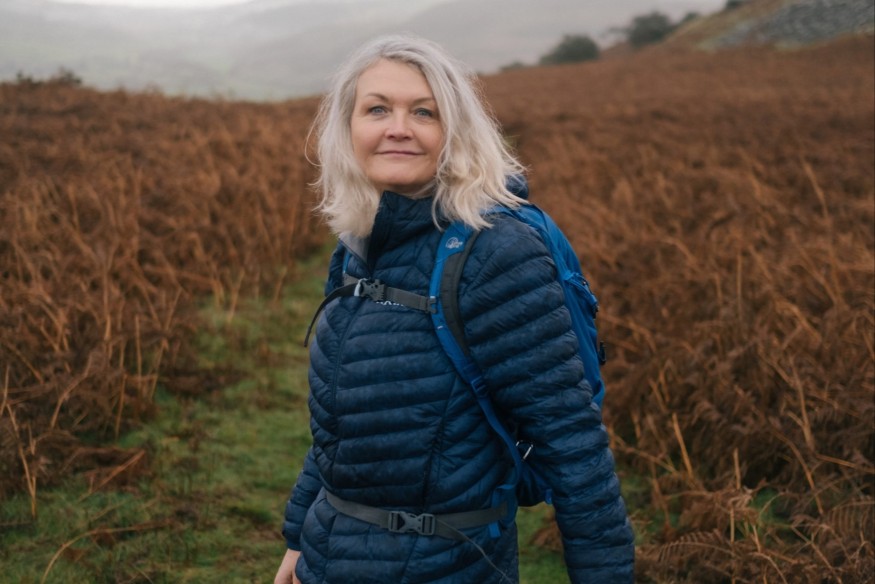
September 20, 2023 - 1361 views
As the human, environmental & financial cost of crime in the countryside rises, Crimestoppers appeals for anonymous information to help make Welsh rural communities safer
To coincide with National Rural Crime Action Week (18-24 September), the charity Crimestoppers has launched a campaign across Wales with an appeal for people to speak up with anonymous information to help protect hard-pressed communities.
In 2022, Crimestoppers received nearly 2,000 rural crime reports from around the UK, a slight increase on the year before which suggests a degree of under-reporting. This is why the charity’s campaign is encouraging more people to speak up and to be aware that they can do something positive completely anonymously.
The cost in England and Wales of rural crime was estimated last year at £49.5 million; a rise of over 22%. *
There are four themes for this campaign covering environmental crime, the protection of wildlife, rural domestic abuse and violence against women and girls in the countryside.
Criminal gangs exploit local wildlife, the environment and communities in many ways: rural residents often feel unsafe in their own homes; wildlife and plant species suffer, farm owners have to foot the bill for criminal damage and theft; and local businesses in rural areas can see their income and cashflow adversely affected.
In rural communities, victims of domestic abuse (both male and female, young and old) are often isolated, increasingly unsupported and left feeling unprotected, with abuse lasting, on average, 25% longer than in urban areas. **
Recent research has shown that rural crime is becoming increasingly serious and organised. Perpetrators are becoming more ruthless and the crimes they commit cause great disruption, which is far greater than the value of the equipment stolen. It can cause stress with a severe emotional impact on those whose business premises are also their family homes.
The victims of rural crime are also increasingly threatened and intimidated over a sustained period of time and it is believed that rural crime is often under-reported because those living in small rural communities are reluctant to contact the authorities for fear of reprisals and retaliation.
Here are some anonymised case studies of information the charity has recently received:
Local man is reported to have stolen expensive plant equipment, along with chainsaws and hedge cutters which he keeps safe at the location given to Crimestoppers. He also sells Class A drugs, and regularly drives an uninsured car whilst being under the influence.
Someone in a nearby farm is involved in illegal hunting. Key details of names and locations supplied. He is also employing others to search for and trap protected wildlife species including foxes.
A man is physically, psychologically, economically abusive and coercively controlling a vulnerable woman at a given address. The woman at the property is afraid to leave and is isolated from her friends. There are children who sadly witness the violence on a regular basis. He is known to drive under the influence with children in the car.
Theft remains a major problem in the agricultural sector, affecting many farmers who have unfortunately experienced the theft of farm machinery, vehicles, GPS units, livestock, horses or fuel. Rural thieves have evolved beyond opportunistic local individuals. Increasingly in recent years, organised and sometimes international criminal gangs are in control of criminal activities, with global events and emerging illicit markets further fueling the demand for stolen equipment.
Wildlife crime includes actions that violate UK laws to safeguard our wildlife and plant species. It not only inflicts pain and suffering on animals, such as hares, birds of prey and bats, but also threatens the survival of certain species.
It is often connected with serious offences such as firearms crimes and organised crime, including an association with cyber-crime through the streaming of illegal activities (such as badger-baiting) that reaches into towns and cities for betting reasons.
Environmental crime includes serious and organised waste crime, fly-tipping, arson and heritage crime. Waste crime is a substantial problem on its own, which causes extensive and severe damage to people, communities, the economy and the environment. It is toxic, and poses a menacing threat to communities, due to the organised crime gangs who are willing to spoil the spaces in which people live.
Domestic abuse happening in a rural or countryside setting is a particular concern as there is also a scarcity of support services available; the more remote the area, the less likely victims will have access to services.
Mick Duthie, Director of Operations at the charity Crimestoppers, said: “Our charity is very aware of how damaging crime in the Welsh countryside can be to families, communities, rural businesses, farmers, wildlife and the local environment.
“Every day, we hear from people who tell us about those involved in damaging our beautiful countryside or are aware of incidents of domestic and wildlife abuse. By telling Crimestoppers anonymously what you know, whether you live in or are visiting Wales, together we can make all the difference.”
To report rural crime 100% anonymously, visit the charity’s website Crimestoppers-uk.org and fill in a secure anonymous online form or call their 24/7 UK Contact Centre on freephone 0800 555 111, 365 days of the year. In an emergency, always call 999.
You can use the free what3words app to report the exact location of an incident. The words can either be copied and pasted into the Crimestoppers rural crime form or a Crimestoppers Call Agent can be told over the phone when you call to give anonymous information.








